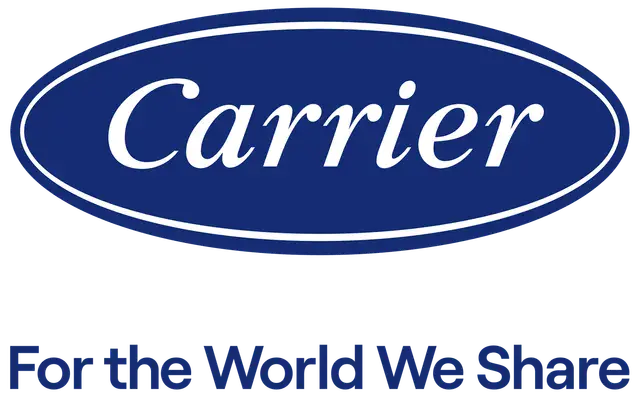Revolutionizing Hot Water Solutions in Homewood with Tankless Technology
Making the switch to a tankless water heater represents one of the most significant upgrades you can make to your Homewood home’s plumbing system. Unlike traditional tank-style water heaters that continuously heat and store 40 to 80 gallons of water, tankless systems heat water on demand, providing an endless supply of hot water while dramatically reducing energy consumption. At Stegall, we specialize in installing, servicing, and maintaining these advanced systems throughout Homewood and the greater Birmingham area, ensuring homeowners enjoy reliable hot water while maximizing energy efficiency.
The technology behind tankless water heaters involves sophisticated heat exchangers that rapidly warm water as it flows through the unit. When you turn on a hot water tap, cold water travels through a pipe into the tankless unit where either a gas burner or electric element heats the water instantly. This process eliminates the standby energy losses associated with traditional water heaters, which must maintain water temperature 24 hours a day, even when no hot water is being used.
Understanding the Benefits for Homewood Homeowners
Energy efficiency stands as the primary advantage of tankless water heater installation in Homewood homes. These units typically operate at 82 to 98 percent efficiency, compared to traditional tank heaters that average 60 to 80 percent efficiency. This increased efficiency translates directly into lower utility bills, with most homeowners seeing a 20 to 30 percent reduction in their water heating costs. Over the lifespan of the unit, which often exceeds 20 years with proper maintenance, these savings can amount to thousands of dollars.
Space savings represent another compelling reason to choose tankless technology. Traditional water heaters require significant floor space, often occupying valuable square footage in basements, garages, or utility closets. Tankless units mount directly on walls, freeing up floor space for storage or other uses. This compact design proves especially beneficial in Homewood’s historic homes where space optimization remains crucial. Additionally, the risk of catastrophic water damage from tank failures disappears entirely, protecting your home and belongings from potential flooding.
Professional Installation Requirements and Considerations
Installing a tankless water heater requires careful planning and professional expertise to ensure optimal performance and safety. The process begins with a thorough assessment of your home’s hot water demands, existing gas or electrical infrastructure, and venting requirements. Our experienced technicians at Stegall, available 24 hours a day, 7 days a week for both residential and commercial needs, evaluate factors including the number of bathrooms, frequency of simultaneous hot water use, and peak demand periods to recommend appropriately sized units.
Gas-powered tankless water heaters, which represent the most popular choice for Homewood homes, require adequate gas line sizing to deliver sufficient fuel for instantaneous heating. Many older homes need gas line upgrades to accommodate the higher BTU requirements of tankless units. Electric tankless heaters demand substantial electrical capacity, often requiring dedicated circuits and potential electrical panel upgrades. Proper venting for gas units involves installing specialized stainless steel venting systems that can withstand the condensing exhaust produced by high-efficiency models.
Maintenance Strategies for Long-Term Performance
Regular maintenance ensures your tankless water heater operates efficiently throughout its extended lifespan. Annual descaling removes mineral buildup that can reduce heating efficiency and damage internal components. Homewood’s water contains moderate levels of minerals that accumulate over time, making this maintenance particularly important. The descaling process involves circulating a mild acidic solution through the heat exchanger to dissolve mineral deposits without damaging sensitive components.
- Filter cleaning: Remove and clean inlet water filters every three to six months to maintain proper water flow
- Venting inspection: Check venting systems annually for blockages, corrosion, or damage that could affect safe operation
- Combustion analysis: Perform annual combustion testing on gas units to ensure proper fuel-air mixture and efficient burning
Selecting the Right System for Your Homewood Home
Choosing between gas and electric tankless water heaters depends on several factors specific to your home and hot water usage patterns. Gas units typically provide higher flow rates, making them ideal for larger households or homes with multiple bathrooms used simultaneously. These units can deliver 5 to 10 gallons per minute of hot water, sufficient for running multiple showers, dishwashers, and washing machines concurrently. Electric units work well for smaller homes or as point-of-use heaters for specific applications like remote bathrooms or outdoor kitchens.
Flow rate calculations determine proper sizing for tankless systems. We calculate your home’s peak hot water demand by adding the flow rates of all fixtures potentially used simultaneously. Standard showerheads flow at 2.5 gallons per minute, while kitchen faucets typically use 2.2 gallons per minute. Temperature rise requirements also factor into sizing decisions, with Homewood’s groundwater temperature averaging 55 degrees Fahrenheit year-round, requiring a 65-degree rise to achieve comfortable 120-degree output water.
Investment Analysis and Cost Considerations
Initial investment for tankless water heater systems exceeds traditional tank heaters, but comprehensive cost analysis reveals significant long-term savings. Installation costs vary based on existing infrastructure modifications, unit capacity, and whether you choose gas or electric models. Gas units typically range from $3,000 to $5,000 installed, while electric installations generally cost $1,500 to $3,500. These figures include professional installation by certified technicians who ensure code compliance and optimal performance.
Operating cost savings accumulate through reduced energy consumption and elimination of standby losses. Average Homewood households save $100 to $200 annually on water heating costs after switching to tankless technology. Extended equipment life further enhances return on investment, with tankless units lasting 20 to 25 years compared to 10 to 15 years for traditional tanks. Federal tax credits and local utility rebates often offset initial costs, making tankless conversion more affordable. Stegall provides comprehensive quotes that include all aspects of installation, from equipment costs to necessary infrastructure upgrades, ensuring transparent pricing for our commercial, industrial, and residential customers throughout the Birmingham metropolitan area.
The decision to upgrade to a tankless water heater represents a smart investment in your Homewood home’s comfort, efficiency, and value. With proper sizing, professional installation, and regular maintenance, these advanced systems deliver decades of reliable hot water while minimizing energy consumption and maximizing available space in your home.


